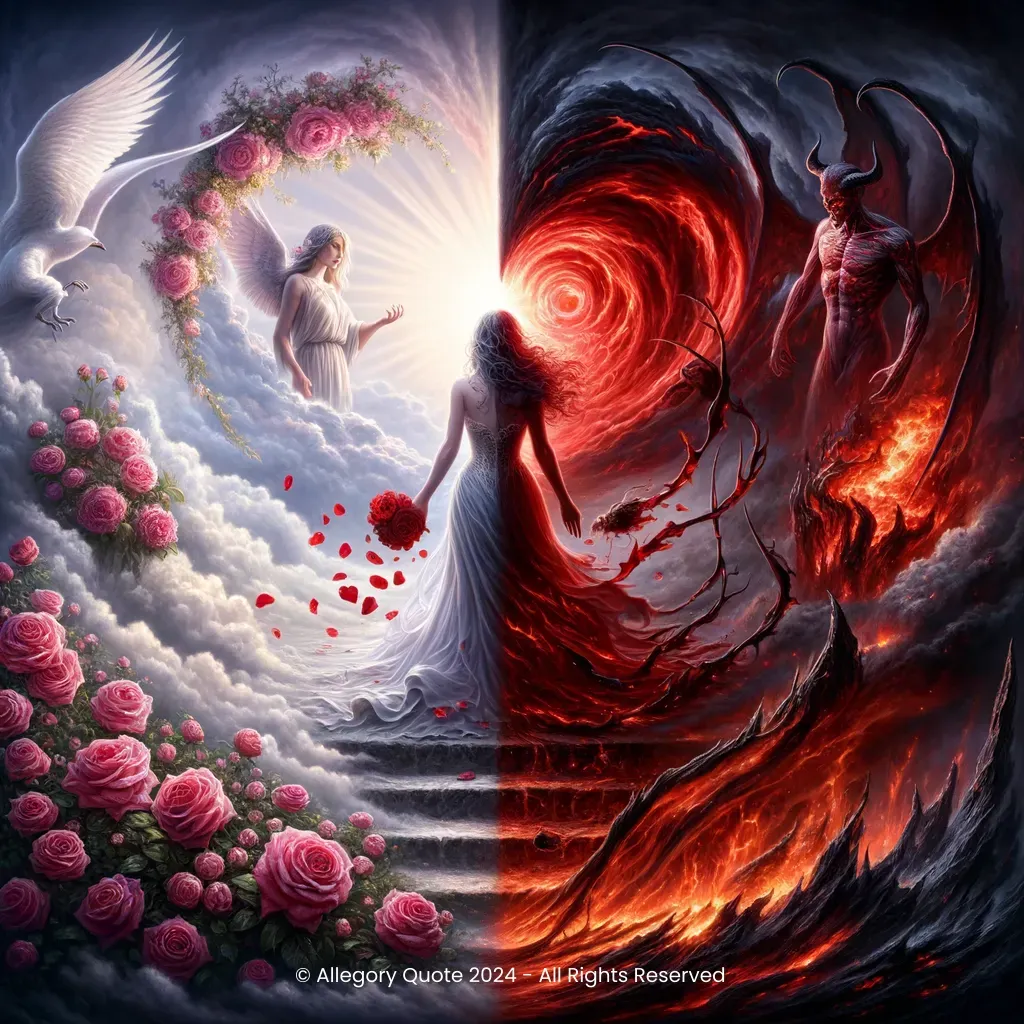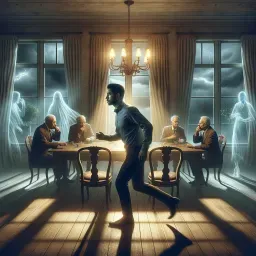”Heaven has no rage like love to hatred turned,
nor hell a fury like a woman scorned“

0
0
0
0
- Meaning
- This phrase portrays the transformative and often destructive power of love when it morphs into hatred. The quote juxtaposes divine and infernal imagery to emphasize that even the most divine or hellish furies are mild compared to the rage of a woman who has been scorned. It suggests that the emotions of love and betrayal can elicit extreme responses, pointing to the intensity of personal and emotional conflict.
- Allegory
- The allegorical image includes: - **Heavenly realm:** Pristine skies and serene divine beings symbolize calmness and mercy, representing the gentle allure of love before it turns to hatred. - **Infernal landscape:** Fiery depths and tumultuous settings to depict hellish fury, signifying the transformation of love into intense, consuming anger. - **The woman:** Central to the image, with a determined expression, embodying the phrase's focus on scorned love leading to fierce emotions. - **Swirling storm of emotions:** Red roses turning to black petals and a heart shattered into shards signify the transition of affection into bitterness and rage. These elements together convey the emotional journey and the powerful impact betrayal can have, aligned with the phrase's intense message.
- Applicability
- The phrase teaches that scorn and betrayal can lead to intense emotional reactions, often more fierce than other forms of anger or revenge. Recognizing this can encourage empathy and carefulness in relationships, highlighting the importance of respect, understanding, and honesty to avoid triggering such potent negative emotions.
- Impact
- The phrase has become ingrained in popular culture, often quoted in discussions of romantic relationships and gender dynamics. It has inspired literary works, films, and even social debates on the consequences of betrayal and emotional turmoil in relationships. Its vivid imagery and pointed commentary resonate across different contexts, making it a memorable encapsulation of the fallout from scorned love.
- Historical Context
- This quotation originates from the Restoration period of English literature, specifically in 1697, when "The Mourning Bride" was first performed.
- Criticisms
- Some may argue that the phrase reinforces gender stereotypes by suggesting that scorned women are particularly vengeful and irrational. It can be seen as perpetuating a negative view of female emotions and responses to heartbreak, potentially minimizing the seriousness of emotions felt by anyone who faces betrayal, regardless of gender. Additionally, its hyperbolic nature might be critiqued as exaggerating the emotional response to scorn.
- Variations
- Variations of this phrase exist in interpretations and adaptations, usually with slight wording changes or in contexts which adapt the idea to different cultural or relational situations, maintaining the core concept of intense emotional reaction following betrayal.
-

Better out than in.
-

I was working on the proof of one of my poems all the morning, and took out a comma. In the afternoon I put it back again.
-

To wear one's heart on one's sleeve.
-

Blood is thicker than water, but it can still be contaminated.
-

Heavy is the head that wears the crown.
-

Give me liberty, or give me death!
-

Living well is the best revenge.
-

I have no trouble with my enemies. I can take care of my enemies all right. But my damn friends, they're the ones that keep me walking the floor nights!".
-

Fools rush in where angels fear to tread.
-

All that glitters is not gold.
No Comments